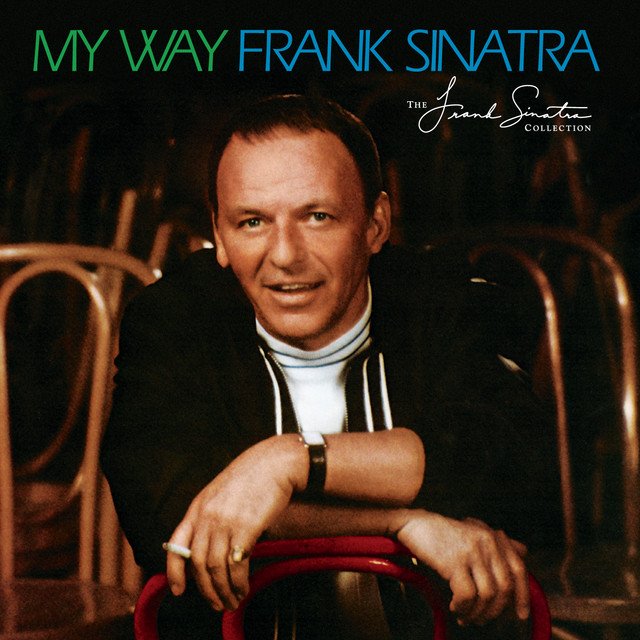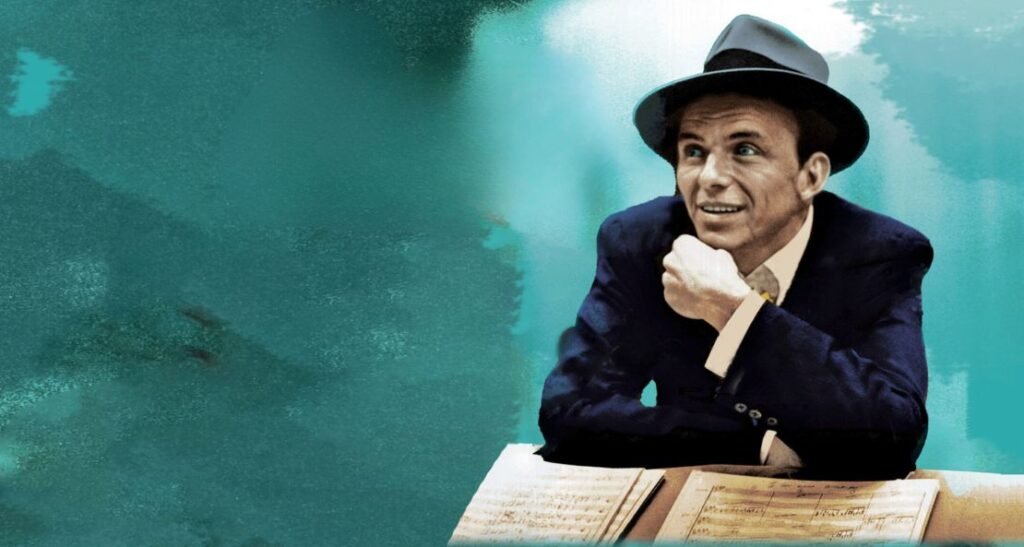Few songs have achieved the kind of cultural ubiquity that Frank Sinatra’s My Way has enjoyed since its release in 1969.
Whether performed at funerals, belted out at karaoke bars, or covered by the most unexpected of artists, the song has permeated genres and generations.

Its enduring appeal isn’t just rooted in Sinatra’s iconic voice but in the song’s deeply resonant message of self-determination.
At its core, “My Way” is about looking back on life’s journey with a sense of ownership.
As Sinatra croons in the song’s most famous line, “I did it my way,” he delivers a statement that has come to embody individualism and defiance.
But what exactly is it about this song that makes it feel so personal to so many, even more than 50 years after its release?
A French Torch Song Reimagined
Interestingly, “My Way” wasn’t always destined for Sinatra.
The melody originates from a 1967 French song titled “Comme d’habitude” (As Usual), written by Claude François and Jacques Revaux.
The original lyrics depicted the monotony of a crumbling relationship, but it wasn’t until Paul Anka reworked the song’s theme and wrote entirely new English lyrics that it took on its now legendary form.
Anka famously crafted the song with Sinatra in mind, saying, “I sat down at an old IBM electric typewriter and thought, ‘If Frank were writing this, what would he say?’”
He described the process as capturing the voice of a man looking back over his life, not with regret but with pride.
Sinatra recorded “My Way” on 30 December 1968, in a single take.
It was released in early 1969, reaching No. 27 on the Billboard Hot 100 chart in the US and spending a remarkable 75 weeks in the UK Top 40.
The song became instantly iconic, even though, as his daughter Tina recalled, “He didn’t like it. He thought it was self-serving and couldn’t get it off his shoe.”
Despite this, it became his signature piece, outliving both the man and the era from which it sprang.
A Song for All, Not Just for Sinatra
What’s striking about “My Way” is how quickly it outgrew Sinatra.
While the song was conceived as a personal reflection of his life and career, it soon became something much bigger—an anthem for anyone who has ever felt the need to assert their independence.
In many ways, the song resonates because it isn’t just about success or victory.
Sinatra doesn’t boast about a perfect life; instead, he admits, “Regrets, I’ve had a few, but then again, too few to mention,” capturing the bittersweet nature of life’s ups and downs.
The power of this message is that it can be interpreted in so many ways.
For some, it’s a song of triumph, a declaration that they faced life head-on and made their own choices.
For others, it’s a reflection of resilience—of enduring hardship and still standing tall.
As Jason King, a professor at NYU’s Clive Davis Institute, observed:
“You could read ‘My Way’ as a kind of metaphor for the World War II generation that Frank Sinatra represented… looking back at 20th-century history in this kind of cosmic defiance.”
Cultural Impact and Controversy
Perhaps the greatest indicator of the song’s power is how widely it has been adopted across different cultures and contexts.
It has been performed at both grand state occasions and personal milestones.
It was played at Donald Trump’s inaugural ball and Nipsey Hussle’s funeral.
These vastly different contexts highlight the song’s unique ability to resonate with a broad range of audiences.
But not everyone, including Sinatra, was comfortable with the song’s bold message.
Introducing it at a Carnegie Hall concert in 1984, Sinatra reportedly told the audience:
“We have a song we haven’t done in a long time, and we’re going to drop it in here now. I think we did it for about 10 years, and it got to be a real pain you know-where.”
Despite its popularity, some critics, like Will Friedwald, pointed out that the song’s brash, self-satisfied tone was at odds with the humility that Sinatra typically brought to his music.
Cover Versions: From Elvis to Punk Rebellion
The reach of “My Way” extends far beyond Frank Sinatra’s version, as it has been covered by artists across multiple genres, each bringing their own interpretation to the song’s message.
Elvis Presley, whose rendition is perhaps the second most famous, performed “My Way” regularly in his later concerts.
Elvis brought a different energy to the song, more vulnerable yet still grand.
His live recording, released posthumously in 1977, even charted higher in the US than Sinatra’s original.
For Elvis, the song became a final bow of sorts, capturing his turbulent life with both pride and regret.
However, it was Sid Vicious of the Sex Pistols who gave the most subversive take on “My Way.”
Vicious famously altered the lyrics and performed it with an anarchic sneer, mocking the very notion of self-determination that Sinatra seemed to champion.
For Vicious, it wasn’t about looking back with satisfaction; his snarling delivery and chaotic performance were a rejection of conformity, a statement of rebellion in true punk fashion.
Paul Anka himself remarked that he was “destabilised” by Vicious’s version, yet couldn’t deny that it carried its own sincerity.
The fact that a song originally associated with elegance and class could be transformed into a punk anthem speaks to its versatility.
The message of doing things one’s own way, for better or worse, connects with everyone—whether they’re standing in front of an orchestra or in a grimy underground venue.
From Karaoke Classic to Funeral Favourite
What’s more fascinating is how “My Way” has embedded itself into everyday life.
It has become a staple in karaoke bars worldwide, where its grandiosity invites anyone to step into the shoes of Sinatra, even if only for a few minutes.
Singing “My Way” at karaoke has become a symbol of confidence, a way of asserting one’s individuality in front of friends or strangers.
In the UK, “My Way” has also achieved a more sombre status, topping the charts as the most requested song at funerals.
For many, the lyrics “I faced it all and I stood tall” provide a fitting tribute to a life lived on one’s own terms.
The emotional weight of the song—its defiance in the face of life’s challenges—makes it a powerful choice to mark the end of someone’s journey.
However, the song’s association with defiance hasn’t always been harmless.
In the Philippines, “My Way” has reportedly been linked to multiple violent incidents, including deaths, due to arguments sparked by bad karaoke performances.
Known as the My Way Killings, these bizarre events led some bars to ban the song entirely.
A Song that Refuses to Fade
Despite Sinatra’s own mixed feelings about the song, it’s clear that “My Way” has outgrown its origins and continues to evolve in meaning.
What started as a personal statement for Sinatra has become an anthem for anyone who seeks to affirm their individuality, whether they’re a pop icon, a punk rocker, or a regular person with a microphone.
The song’s enduring appeal lies in its universality—no matter the era, no matter the performer, the message of standing firm in one’s decisions is timeless.
It’s a song that has crossed cultural and generational divides, finding a home in settings as varied as state events, punk shows, and private memorials.
In many ways, “My Way” has become bigger than Sinatra himself.
The lyrics, “For what is a man, what has he got? If not himself, then he has naught,” continue to resonate with those who find themselves reflecting on their own choices, be they triumphant or tragic.
The Future of “My Way”
Looking ahead, it’s likely that “My Way” will continue to evolve with new interpretations and contexts.
As the world grows more complex and individuals strive for personal autonomy in different ways, the song’s message of self-determination remains as relevant as ever.
Younger generations, navigating a world filled with uncertainty and shifting norms, may find new meaning in “My Way” as they carve out their own paths.
In hip-hop, for example, artists like Jay-Z have sampled My Way to assert their own success stories, further demonstrating how the song can move beyond its mid-20th-century origins to speak to new audiences.
With its lyrics of resilience and autonomy, “My Way” seems poised to remain an anthem for those who dare to take control of their own narrative.
A Song for Every Generation
“My Way” was never just Sinatra’s song, and it was never just about him.
Over the years, it has taken on new meanings for different people across different walks of life.
For some, it’s an anthem of triumph; for others, it’s a reflection of survival.
It’s a song that can be both celebratory and melancholic, depending on who is singing it and why.
Though Sinatra may have grown tired of it, “My Way” has become a permanent part of pop culture.
It’s not just a relic of the past, but a living, breathing song that continues to speak to the human condition.
And as long as people continue to seek their own way through life, “My Way” will remain relevant, a powerful reminder of self-expression in all its forms.
You might also like:
- Unlocking the Meaning: A Lyrical Analysis of Patrick Watson’s Je te laisserai des mots
- Neil Diamond Girl, You’ll Be a Woman Soon: The Story Behind the Song
- Just My Imagination (Running Away with Me): Exploring the Timeless Magic of The Temptations Classic Song
- How September by Earth, Wind & Fire Became a Timeless Classic
Frank Sinatra My Way Lyrics
Verse 1
And now, the end is near
And so I face the final curtain
My friend, I’ll say it clear
I’ll state my case, of which I’m certain
I’ve lived a life that’s full
I traveled each and every highway
And more, much more than this
I did it my way
Verse 2
Regrets, I’ve had a few
But then again, too few to mention
I did what I had to do
And saw it through without exemption
I planned each charted course
Each careful step along the byway
And more, much more than this
I did it my way
Chorus
Yes, there were times, I’m sure you knew
When I bit off more than I could chew
But through it all, when there was doubt
I ate it up and spit it out
I faced it all, and I stood tall
And did it my way
Verse 3
I’ve loved, I’ve laughed and cried
I’ve had my fill, my share of losing
And now, as tears subside
I find it all so amusing
To think I did all that
And may I say, not in a shy way
Oh, no, oh, no, not me
I did it my way
Chorus
For what is a man, what has he got?
If not himself, then he has naught
To say the things he truly feels
And not the words of one who kneels
The record shows I took the blows
And did it my way
Outro
Yes, it was my way


